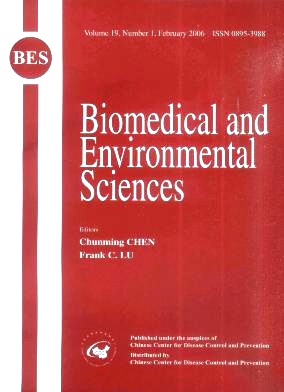Inhibitory Effect of Isoflavones on Prostate Cancer Cells and PTEN Gene
Abstract: Objective To explore the mechanisms by which genistein and daidzein inhibit the growth of prostate cancer cells. Methods LNCaP and PC-3 cells were exposed to genistein and daidzein and cell viability was determined by MTT assay and cytotoxicity of the drugs by LDH test. Flow cytometry (FCM) was used to assess the cell cycle in LNCaP and PC-3 cells.Reverse transcription-polymerase chain reaction (RT-PCR) was applied to examine the expression of PTEN gene (a tumor suppressor gene), estrogen receptor alpha gene (Erα), estrogen receptor beta gene (Erβ), androgen receptor gene (AR) and vascular endothelial growth factor gene (VEGF). Results The viability of PC-3 and LNCaP cells decreased with increasing concentrations and exposure time of genistein and daidzein. Genistein increased G2/M phase cells in PC-3 cells while decreased S phase cells in LNCaP cells in a dose-dependent manner. Daidzein exerted no influence on the cell cycle of LNCaP and PC-3 cells, but the apoptosis percentage of LNCaP cells was elevated significantly by daidzein. Genistein induced the expression of PTEN gene in PC-3 and LNCaP cells. Daidzein induced the expression of PTEN gene in LNCaP but not in PC-3 cells. The expression of VEGF, Erα and Erβ genes decreased and AR gene was not expressed after incubation with genistein and daidzein in PC-3 cells. In LNCaP cells, the expression of VEGF and AR gene decreased but there was no change in the expression of Erα and Erβ gene after incubation with genistein and daidzein. Conclusion Genistein and daidzein exert a time- and dose-dependent inhibitory effect on PC-3 and LNCaP cells. The down-regulation of ER gene by daidzein influences the growth of PC-3 cells directly. The inhibition of PC-3 cells by genistein and that of LNCaP cells by genistein and daidzein may be via Akt pathway that is repressed by PTEN gene, which subsequently down-regulates the expression of AR and VEGF genes. Our results suggest that the expression of PTEN gene plays a key role and several pathways may be involved in the suppression of prostate cancer cells by genistein and daidzein.
| Citation: | FENG CAO, TAI-YI JIN, YUAN-FEN ZHOU. Inhibitory Effect of Isoflavones on Prostate Cancer Cells and PTEN Gene[J]. Biomedical and Environmental Sciences, 2006, 19(1): 35-41. |







 Quick Links
Quick Links
 DownLoad:
DownLoad: